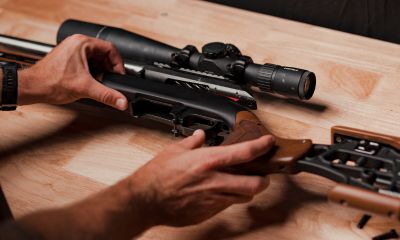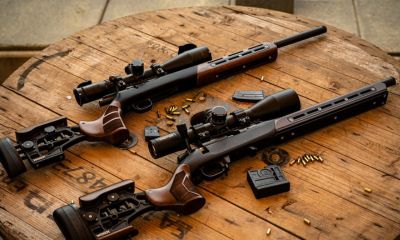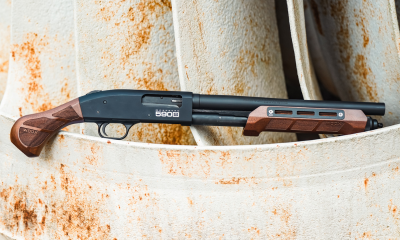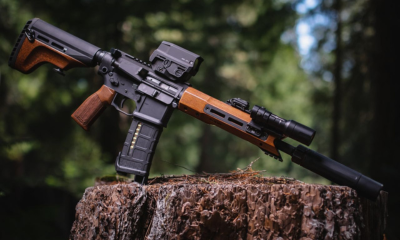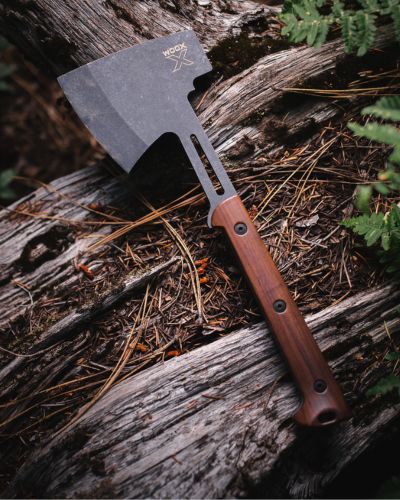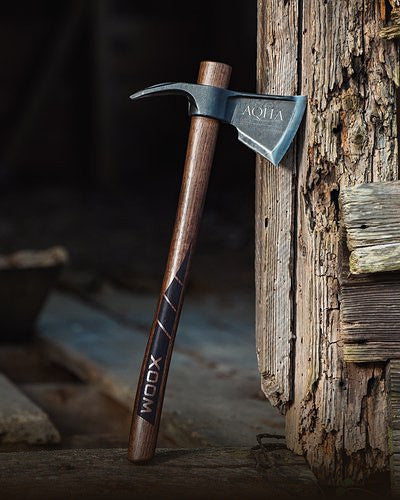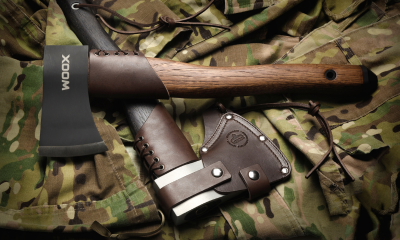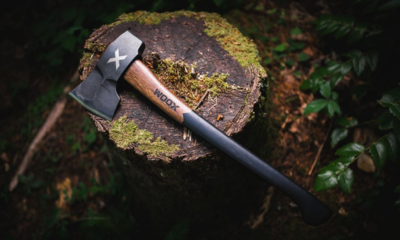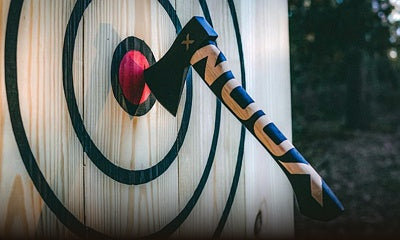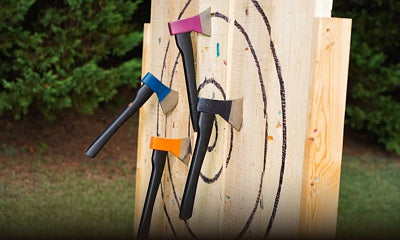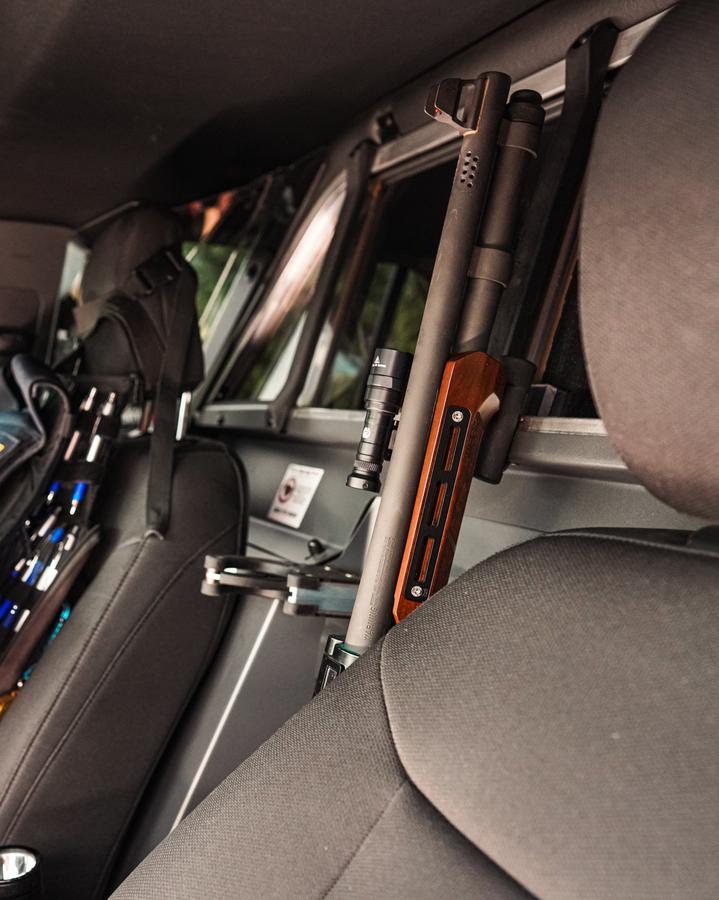

Which is Best: Factory Ammo or Reloads?
The ongoing debate between factory ammunition and reloads has been a point of contention among shooting enthusiasts and firearm aficionados for decades. Both options have their staunch supporters, each touting the benefits of their preferred choice. In this article, we'll delve into the advantages and drawbacks of factory ammo and reloads, aiming to shed light on the best option for different scenarios.

Factory Ammo: Convenience and Consistency
Factory ammunition offers several advantages that make it a compelling choice for many shooters. Here are the pros of using factory ammo:
+ Readily Available: Factory ammunition is easily accessible in most outdoor retail stores, gun shops, and online retailers. The most popular cartridges are widely stocked, ensuring shooters can find the ammunition they need with ease.
+Wide Bullet Weight Selection: Manufacturers offer a diverse range of bullet weights for various calibers. This selection allows shooters to choose the ideal bullet weight to match their specific shooting needs, whether it's for target shooting, hunting, or self-defense.
+Variety of Brands: With numerous ammunition manufacturers in the market, shooters have the freedom to select from various reputable brands. Each brand may have its unique performance characteristics, giving shooters the flexibility to experiment and find the best match for their firearms.
+ Safe and Reliable: Factory ammunition is carefully designed and tested to meet industry safety standards. The loads are optimized to provide consistent performance while avoiding overpressure issues, ensuring safer shooting experiences.
+ Affordability: In many cases, factory ammunition is more affordable than the cost of reloading your own rounds. Bulk purchasing options and competitive pricing by manufacturers make it an economical choice, especially for shooters who engage in regular target practice or competitions.

While factory ammunition offers many advantages, it is not without its drawbacks. Here are the cons of using factory ammo:
Cost Variation: While factory ammunition is generally more affordable than reloading, some specialized or less common cartridges can be expensive compared to their reloadable counterparts. Shooters using less mainstream calibers might find themselves paying a premium for factory ammo.
- Inconsistent Velocities: Factory ammunition, particularly in budget-friendly lines, may exhibit inconsistencies in velocities from shot to shot. This variation can affect accuracy and precision, making it harder for shooters to achieve tight groupings.
- Limited Seating Depth Options: SAAMI (Sporting Arms and Ammunition Manufacturers' Institute) specifications dictate the overall length of factory ammunition. As a result, shooters might not have the flexibility to seat bullets closer or further from the rifling lands to optimize accuracy for their specific firearm.
- Powder Temperature Stability: The specific powder used in factory ammunition may not be optimized for consistent performance across a wide range of temperatures. Extreme temperature variations can influence the velocity and point of impact, affecting the shot's trajectory.
- Finding the Right Brand: Different firearms have unique preferences for ammunition, and not all factory ammo brands may perform optimally in a particular rifle. Shooters may need to try several brands before finding the one that delivers the best accuracy and reliability in their firearm.
Bergara B-14R With The Woox Furiosa | 22LR Perfection?
VIDEO REVIEWReloads: Economy and Tailored Performance
Reloading ammunition offers a plethora of advantages that appeal to many shooting enthusiasts. Here are the pros of reloading your own ammunition:
+ Complete Control over Ingredients: Reloading empowers shooters to have full control over each component of the cartridge, including brass, primer, powder, and bullets. This level of customization allows reloaders to tailor their ammunition to match the specific needs of their firearm, resulting in improved accuracy and performance.
+ Optimized Cartridge Fit: By customizing the load for their individual firearm, reloaders can optimize the cartridge fit to achieve a perfect match with their rifle's chamber and barrel. This alignment can enhance accuracy and consistency, especially in precision shooting or long-range applications.
+ Increased Velocity Potential: Reloaders can experiment with different powder charges to achieve higher velocities and take advantage of a bullet's ballistic coefficient for improved downrange performance. This flexibility is especially valuable for long-range shooters seeking to maximize the bullet's trajectory.
+ Bullet Seating Adjustments: Reloading enables fine-tuning of the bullet seating depth, allowing shooters to experiment with different distances from the bullet's ogive to the rifling lands. This optimization, often referred to as "chasing the lands," can result in improved accuracy and consistency.
+ Learning and Enthusiasm: Reloading is a hobby that allows shooters to delve into the intricacies of ammunition creation. Learning about the various components and how they interact in a completed cartridge can be both intellectually stimulating and rewarding. Over time, the reloading process becomes more efficient, reducing the time required for future reloads.
+ Brass Reusability: High-quality brass can be reused for multiple iterations, significantly reducing the cost of subsequent reloads compared to buying new brass for every round.
+ Consistency and Replication: Once a reloader discovers the ideal combination of components that yield optimal performance in their firearm, they can reproduce identical loads consistently. This ability to replicate loads ensures a steady supply of dependable

Here are additional cons to consider when it comes to reloading your own ammunition:
- Initial Investment in Quality Components: While reloading can save money in the long run, getting started with quality components can be initially expensive. High-quality brass, premium bullets, and specialized powders may come at a higher cost than standard factory ammunition, impacting the upfront investment.
- Learning Curve and Time-Consuming Process: Reloading is a skill that requires a significant amount of learning and practice to master each step properly. From case preparation to load testing and fine-tuning, reloaders need to invest time and effort to achieve consistent and safe results.
- Increased Barrel Wear: Repeatedly shooting reloads with hot or maximum loads can potentially accelerate barrel wear. As reloaders experiment with different loads and try to find the optimal performance, they may encounter scenarios where the barrel experiences more stress than usual. Shooters who fire a high volume of reloaded rounds should monitor barrel wear and consider having a spare barrel or plan for eventual barrel replacement.
- Components Availability: Reloading heavily relies on the availability of components such as bullets, powder, primers, and brass. During periods of high demand, certain components may become scarce, leading to potential delays in reloading or higher costs when available.
Factory Ammo vs. Reloads: Pros and Cons
| Pros | Factory Ammo | Reloads |
|---|---|---|
| Convenience | ✔️ | ❌ |
| Consistency and Reliability | ✔️ | ❌ |
| Customization | ❌ | ✔️ |
| Cost | ❌ | ✔️ |
| Warranty and Liability | ✔️ | ❌ |
| Complete Control over Ingredients | ❌ | ✔️ |
| Ability to Adjust Bullet Seating | ❌ | ✔️ |
| Potential for Increased Velocity | ❌ | ✔️ |
| Learning and Enthusiasm | ❌ | ✔️ |
| High-Quality Brass Reusability | ❌ | ✔️ |
| Consistency and Replication | ✔️ | ❌ |
| Barrel Wear | ❌ | ✔️ |
| Components Availability | ✔️ | ❌ |
SHOP BY purpose
Discover the perfect fit for your needs with our diverse collection of aftermarket stocks, tailored for a range of different purposes.
see all our stocksFinal considerations
In the world of ammunition choices, both factory ammo and handloading have their unique advantages and disadvantages. Deciding between the two ultimately boils down to individual preferences, shooting needs, and the desire for customization. Each option caters to different types of shooters, making it crucial to weigh the pros and cons carefully.
For shooters seeking simplicity and convenience, factory ammunition is the go-to choice. It allows for a grab-and-go approach, eliminating the need for reloading equipment and components. If time is limited, or the intricacies of reloading seem daunting, factory ammo offers satisfactory performance for most shooting scenarios.
On the other hand, handloading appeals to those who relish the process of creating their ammunition. Reloading enthusiasts appreciate the complete control over each variable, from brass to bullets, enabling them to optimize the cartridge to their specific firearm. Handloading opens the door to fine-tuning loads for improved accuracy and tailoring cartridges for specific applications, such as long-range shooting or hunting specific game.
Moreover, handloading can lead to achieving better performance than factory rounds, as shooters can experiment with various combinations to find the perfect recipe for their firearm. Additionally, using high-quality brass and reloading components can lead to cost savings over time, making handloading an attractive option for frequent shooters.
It is essential to emphasize that handloading demands a commitment to safety and a willingness to learn and refine the process continually. Reloading safely requires meticulous attention to detail and adherence to best practices to avoid dangerous malfunctions.
Ultimately, the decision between factory ammo and handloading depends on the shooter's preferences, shooting habits, and goals.
Some shooters might use both options, employing factory ammo for convenience and reserve handloads for specialized shooting scenarios.
Please feel free to share in the comments below which cartridges you currently shoot and whether you handload or use factory ammunition. Your feedback is valuable, and the exchange of experiences within the shooting community can foster a deeper understanding and appreciation for both options.
As always, prioritize safety in all shooting endeavors, whether using factory ammo or handloads. Stay safe and hunt hard!



